 Petzlover
Petzlover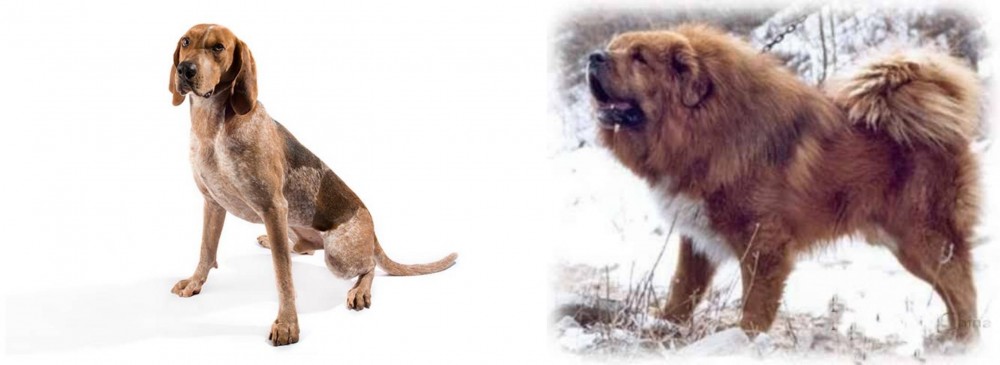 Coonhound is originated from United States but Tibetan Kyi Apso is originated from China. Both Coonhound and Tibetan Kyi Apso are having almost same height. Coonhound may weigh 11 kg / 24 pounds lesser than Tibetan Kyi Apso. Both Coonhound and Tibetan Kyi Apso has almost same life span. Both Coonhound and Tibetan Kyi Apso has almost same litter size. Coonhound requires Low Maintenance. But Tibetan Kyi Apso requires Moderate Maintenance
Coonhound is originated from United States but Tibetan Kyi Apso is originated from China. Both Coonhound and Tibetan Kyi Apso are having almost same height. Coonhound may weigh 11 kg / 24 pounds lesser than Tibetan Kyi Apso. Both Coonhound and Tibetan Kyi Apso has almost same life span. Both Coonhound and Tibetan Kyi Apso has almost same litter size. Coonhound requires Low Maintenance. But Tibetan Kyi Apso requires Moderate Maintenance
 The Coonhound, hailing from the United States of America, is a scenthound or hunting dog of which there are 6 distinct breeds which are recognized by the United Kennel Club.
The Coonhound, hailing from the United States of America, is a scenthound or hunting dog of which there are 6 distinct breeds which are recognized by the United Kennel Club.
Because foxhounds were regarded as inadequate for hunting, people started looking at the developlent of other hounds who had a keen sense of smell and the ability to track and animal effectively and without necessarily a human commanding it.
Foundation dogs were selected because of their keen sense of smell and Bloodhounds were also added to the Coonhound line to provide the Coonhound with superb tracking skills. Its precise origins are unknown but it is believed that many of the European hunting hounds were involved in its development as well as the Kerry Beagle and the FrenchBleu Gascogne hounds.
It was in 1912 that the first Black and Tans were registered with the United Kennel Club. In 1945 the American Kennel followed.
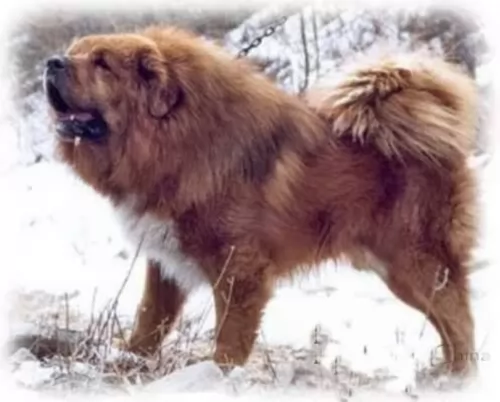 The Tibetan Kyi Apso is an ancient rare breed. In fact, it is one of the rarest breeds on earth. Coming from Tibet, the Kyi Apso guarded livestock and homes for the nomads of the “rooftop of the world”. Apso means bearded and Kyi meand dog thus the Kyi Apso is a bearded dog.
The Tibetan Kyi Apso is an ancient rare breed. In fact, it is one of the rarest breeds on earth. Coming from Tibet, the Kyi Apso guarded livestock and homes for the nomads of the “rooftop of the world”. Apso means bearded and Kyi meand dog thus the Kyi Apso is a bearded dog.
This breed is very intelligent with a great personality and charm. In Western countries the breed is called Apso Do-Kyi or the Tibetan Collie. The first time these dogs are mentioned in any kind of documents was the late 19th and early 20th centuries in writings about Central Asian dogs. The Kyi Apso is related to the Tibetan Mastiff.
The breed is known to have been imported by Captain George Augustus Graham as a Tibetan wolf dog. The dog was also known to be owned by the 13th Dali Lama. There have not been many exported to Europe or North America, with the first coming to North America in the 1970’s.
There have been no registered litters since 2000 and the Tibetan Kyi Apso Club closed in 1999.
 Known also as the Black and Tan Coonhound, the Coonhound is a medium to large dog weighing 23–34kg and standing at 53-69cm. He makes an exceptional pet.
Known also as the Black and Tan Coonhound, the Coonhound is a medium to large dog weighing 23–34kg and standing at 53-69cm. He makes an exceptional pet.
He has a short, dense coat of black and tan in color with tan markings around the muzzle. He has long, floppy ears and a long tail. With his long, strong, muscled legs he is able to pick up speed when on the hunt. He is known for his deep, booming bark.
The Coonhound isn’t as jaunty as some other dog breeds but he is social, playful and friendly. He is even tempered and sensitive, and you’ll know when you’ve hurt his feelings as he gets a look about him of utter misery.
He definitely isn’t suited to apartment living and being left on his own, and is therefore not suited to an owner who works all day and leaves him on his own. They just love human companionship, and enjoy taking part in all the activities of their owner's life.
Early training and socialization will be necessary to ensure he grows up calm, obedient, relaxed and confident. When he has been socialized he makes an excellent family pet, getting on well with children as well as with other pets in the home.
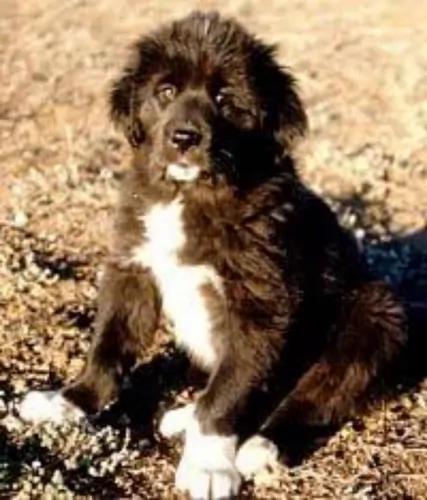 The Tibetan Kyi Apso is a large dog with a bearded face, full coat and curled tail. They have longer hair than the Mastiff and of course the shaggy, bearded muzzle. It is not as hefty as the Mastiff of course, and he is more athletic. Like many primitive dogs before them, the Kyi Apso comes into heat only one time a year, contributing to the rareness of the breed.
The Tibetan Kyi Apso is a large dog with a bearded face, full coat and curled tail. They have longer hair than the Mastiff and of course the shaggy, bearded muzzle. It is not as hefty as the Mastiff of course, and he is more athletic. Like many primitive dogs before them, the Kyi Apso comes into heat only one time a year, contributing to the rareness of the breed.
With their bearded face, the breed’s head appears bigger than it is. The ears are shaped as a V and skull is flat with the eyes on the outside of it. Their muzzle looks larger than it is due to the beard. Nose and lips are black, eyes are amber and almond shaped.
The coat is double, sheds odors and molts once a year. The coat can be black and tan, shades of red, blue-gray with white and solid black.
 The Coonhound is often described as a carefree, happy-go-lucky type of dog breed who is social and who just loves to spend time with his human family.
The Coonhound is often described as a carefree, happy-go-lucky type of dog breed who is social and who just loves to spend time with his human family.
They just love their human family, and are full of mischievous tricks, being amusing and entertaining for the family.
He is a playful, gentle dog and he seems to keep his puppy nature much longer than with other dog breeds, but this is part of his appealing nature. He isn't a dog breed for everyone as some dog owners might want a more serious breed, but when trained and socialized, he promises to turn out to be an adored family pet.
 Coonhounds usually enjoy very good health, but they can still suffer with any one of the more common dog illnesses there are. They’ve got long ears so they are more prone to ear infections. Also, hip dysplasia has been recorded too.
Coonhounds usually enjoy very good health, but they can still suffer with any one of the more common dog illnesses there are. They’ve got long ears so they are more prone to ear infections. Also, hip dysplasia has been recorded too.
It is why so many breeders opt to have their dogs certified by the Orthopedic Foundation of America.
Ear infections in dogs with long ears are common and most dogs who suffer with an ear infection will scratch at the ears and shake their heads. There can also be redness in the ear.
Mites, bacteria and yeast are all common problems, and your veterinarian can treat it and show you how to clean the dog’s ears to keep them free from infection in the future.
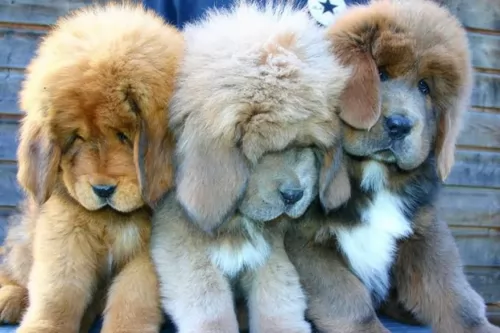 Bloat: Fatal unless treated immediately by a vet. Common to this size dog and can be controlled by eating habits.
Bloat: Fatal unless treated immediately by a vet. Common to this size dog and can be controlled by eating habits.
Other than these the Tibetan Kyi Apso is an ancient dog and very healthy as they were mostly isolated and did not interbreed. No genetic predetermined health problems.
 Your Coonhound will want a lot of exercise. While you keep him on a leash when walking him or allowing him to run while you cycle, he’ll also want a place where he can run off the leash.
Your Coonhound will want a lot of exercise. While you keep him on a leash when walking him or allowing him to run while you cycle, he’ll also want a place where he can run off the leash.
Even though the Coonhound is a short haired dog, he does shed. Making use of a rubber curry brush, brush him down twice a week to maintain his beautiful black, velvety coat.
Because he is an athletic outdoor dog, he may be more prone to picking up ticks and fleas and there are excellent shampoos available that keep these parasites at bay for a good many days.
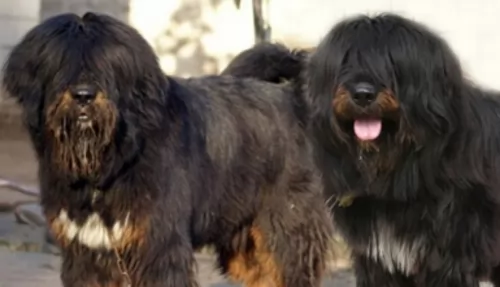 1Feeding the puppy – grow quickly don’t overfeed. High quality large breed puppy food and feed 4 small meals a day.
1Feeding the puppy – grow quickly don’t overfeed. High quality large breed puppy food and feed 4 small meals a day.
2.Feeding the adult – don’t over feed and don’t feed right before or after exercise due to the possibility of bloat. Feed high quality adult large breed dog food 2 x day in smaller meals.